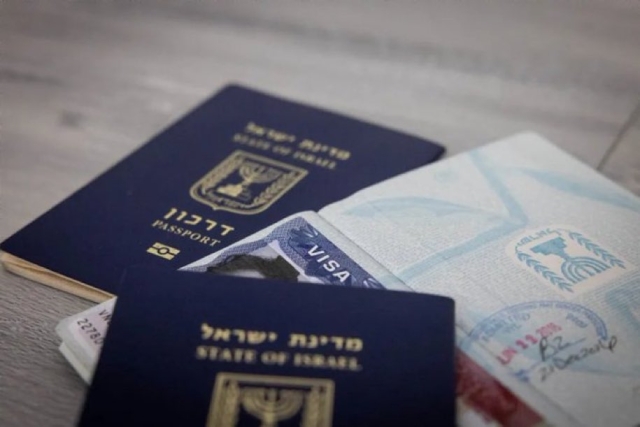The U.S. State Department announced on Wednesday that Israel has successfully met the criteria to join the American Visa Waiver Program. This significant milestone permits Israeli nationals to travel to the United States without the necessity of procuring a tourist-entry visa in advance.
High-ranking officials from the Department of Homeland Security emphasized Israel's pivotal role as a "key U.S. partner and ally" during a media briefing. Contrary to the notion that this development is a unilateral favor, they clarified that the program serves the mutual interests of both the United States and Israel. "This arrangement provides advantages not only to Israelis traveling to the United States but also benefits American citizens residing in the West Bank (Judea & Samaria) and Gaza, who can now enter Israel without requiring a visa," the officials explained.
Israel has officially been admitted into the US Visa Waiver Program after years of efforts from both governments. This serves as a major boost to bilateral ties.
— ILTV News (@ILTVNews) September 27, 2023
Going forward, Israelis will only be required to fill out an Electronic System for Travel Authorization form a few… pic.twitter.com/IkuQmSq6I3
This historic agreement comes after a series of negotiations in which Israel consented to ease travel restrictions for Palestinian-Americans originating from Gaza and the Palestinian territories in Judea and Samaria, commonly referred to as the West Bank. This reciprocity requirement has been an issue of significant importance. "The emphasis on mutual benefits is crucial, especially considering the disparate travel experiences that U.S. citizens have previously encountered when journeying to and from Israel," the officials elaborated.
Providing further details, Homeland Security representatives commented on the pilot period that paved the way for this agreement. Since Israel revised its travel guidelines on July 20, more than 100,000 U.S. citizens, including tens of thousands of Palestinian-Americans from Gaza, Judea, and Samaria, have successfully entered Israel without a visa.
BREAKING: Secretary of Homeland Security Alejandro Mayorkas has decided to allow Israel to join the U.S. Visa Waiver Program. My report on @axioshttps://t.co/APH89NZxTo
— Barak Ravid (@BarakRavid) September 27, 2023
Israel's inclusion in the American Visa Waiver Program is the culmination of a decades-long effort. One major obstacle was reducing the rate of visa refusals to below 3%, a target successfully met by Israel in January of this year. To further align itself with the program's regulations, the Knesset passed several laws that allow Israeli authorities to share pertinent information with their American counterparts. This includes data on prospective travelers as well as Israeli nationals involved in criminal activities.
Congratulations to Israel 🇮🇱 for its admission to the US 🇺🇸 Visa Waiver Program.
— Samawal Foundations (@Samawal_LLC) September 27, 2023
Arab citizens of Israel now have the most powerful passport in the Middle East. pic.twitter.com/T9LO6NEPWz
The U.S. administration had stipulated that Israel's eligibility for the program hinged on providing equal treatment to all its citizens at international points of entry, including those with dual citizenship. However, Palestinians living under the jurisdiction of the Palestinian Authority in Judea and Samaria, or those residing in Hamas-controlled Gaza, are not Israeli citizens. A special mechanism was thus necessary to allow U.S. citizens in these regions to travel into Israel, necessitating coordination with Palestinian Security Services—a process that took considerable time to finalize.
Thank you @SenJackyRosen for your outspoken leadership in support of Israel’s entry into this program!
— AIPAC (@AIPAC) September 26, 2023
Your letter with @SenRickScott signed by 65 senators—a majority from both parties—makes clear the Senate strongly backs Israel’s entry into the Visa Waiver Program this year. https://t.co/CiCryfZB65 pic.twitter.com/HTjYV71coa
It's worth noting that Palestinians have occasionally faced difficulties when attempting to move into and out of the Palestinian territories of Judea and Samaria, areas that have been under Israeli control since 1967, as well as Gaza which has been run by Hamas which does not recognize Israel as a sovereign country and therefore, refuses to cooperate on administrative levels. During times of escalated terror attacks targeting Israeli citizens, Israeli security agencies implemented multiple layers of security checks and travel restrictions affecting Palestinians, even those possessing dual U.S. or European Union citizenship. Despite resistance from the heads of Israeli security services, the government made the strategic decision to relax these limitations, underlining the collaborative spirit of this landmark agreement.


